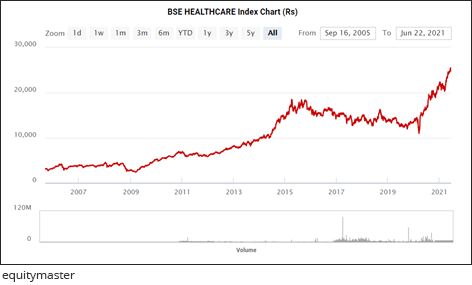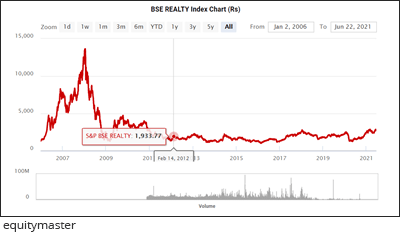Investment in securities market are subject to market risks. Read all the related documents carefully before investing
Savings of RS 6,050 on Our
Small Cap Research?
- Home
- Outlook Arena
- What is thematic investing?
What is thematic investing?
The book 'Richest Man in Babylon' is a timeless classic on the ancient wisdom on money.
It dispenses financial advice through a collection of parables set 4,000 years ago in ancient Babylon. The book remains in print almost a century after the parables were originally published. It's regarded as a classic of personal financial advice.
While reading this classic, I came across a lesson from a chapter which said, 'No one has ever become wealthy by saving'.
Isn't the above quote counter-intuitive? As kids, haven't we been taught to save?
In fact, savings is one habit which Indians have embedded in their culture.
So then why such a statement?
As I dwelled deeper to understand, what the author meant was:
Saving money isn't enough. Saving gets effective only when it is invested.
I am sure we are all aware about the famous saying from Warren Buffet:
'If you don't find a way to make money while you sleep, you will work until you die'.
If investing is a means to create wealth, the billion dollar question is where to invest.
After all the difference between wealth creation and wealth destruction is determined by the asset class you choose.
In the era of globalisation, where transactions happen at the touch of a button, asset classes are global in nature.
Apart from investment in local asset classes such as equities, bonds, physical gold, and property, how about buying the shares of Apple or Warren Buffets evergreen investment, Coca Cola?
Or maybe if you are bullish on gold, why not buy the stock of a gold mining company?
One of the most common question in investment is this...
Which sector is in flavor?
What theme is the market betting on these days?
--- Advertisement ---
Investment in securities market are subject to market risks. Read all the related documents carefully before investing
Accepting 150 new members!
The first 150 people to join our small cap recommendation service,
will get 60% off on 1 year of membership!
Full Details Here
Details of our SEBI Research Analyst registration are mentioned on our website - www.equitymaster.com
----------------------------------------
What is thematic investing?
Thematic investing is generally a top-down investment approach that primarily identifies macro-level trends and invests in the companies that stand to profit from the trend.
Thematic investing involves identifying companies revolving around that trend.
After all not all sectors do well all the time. A particular sector might be in favor for some years, fading thereafter and giving way to a different sector.
Asset class involved in thematic investing
Equities, domestic and global, commodities, and currencies all qualify in thematic investing. In fact, global investors view countries as different themes.
For instance, in 2008 the acronym BRICS was coined which included Brazil, Russia, India, China, and Spain. This was nothing but thematic investing based on opportunities prevalent in each of these countries.
The MSCI emerging market index is a form of thematic investing. It's the aggregate market capitalization of a group of emerging markets which offer high growth potential.
Thematic investing can be done via domestic as well as international mutual funds.
Common themes for thematic investing
- Environmental, social and governance (ESG)
- Disruptive technology (e.g. artificial intelligence, blockchain, machine learning)
- Healthcare
- India's millennial theme (e.g. gaming, cyber security etc)
- Rural India
- Infrastructure
- FAANG stocks
- Gold mining stocks
- Global healthcare companies focusing on genome sequencing
To understand thematic investing you need to explore the underlying factors which determine the performance of certain themes during certain periods.
Factors affecting themes across the world
- Economic cycles - Every sector goes through an economic cycle. Never in history have all the sectors in an economy performed with a perfect correlation. It's famously said, there is always a bull market in some part of the investing universe. In fact, there are times when certain countries outperform others based on certain tailwinds.
- Macroeconomic factors - Themes evolve to a great extent due to changes in the underlying macroeconomic factors affecting them. Interest rates are an important tool used by central banks in determining fiscal and economic policies. It has a direct bearing on certain sectors as well as asset classes.
For instance, in a high interest rate regime, the preferred asset class will be bonds and not equities. When inflation is expected to shoot up, gold is preferred as an asset class.
At the same time, if the local currency is depreciating, the theme to look out for is the export oriented companies as they benefit.
False notion about thematic investing
One notion people have is that thematic investing is limited only to equities. However in today's digital era, theme can be global too and across any asset class.
For instance, if you want to play gold as a theme why limit only to buying the yellow metal?
Thematic investing on gold gives you the opportunity to buy stocks of gold mining companies too. That's what Warren Buffet did recently when his company Berkshire Hathway purchased shares of Barrick Gold.
Or maybe the opposite when you want to play the electric vehicle as a theme. Why only limit your investments to purchasing stocks of electric vehicle manufacturers?
You can bet on the entire supply chain by buying commodities like copper, nickel, and lithium.
The most critical factor for thematic investing
One of the most important factors in defining returns from thematic investing or a thematic fund is timing.
Look at the BSE Healthcare Index below. We can draw the following conclusions.
Chart showing BSE Healthcare index since inception to date

The index stagnated from 2005 to 2009.
2009 to 2015 the index gave a whopping 25% CAGR and was one of the top major performing index.
However from 2015 to 2020, the healthcare sector again went into hibernation and barely gave you fixed deposit returns.
Now let us look at an extreme illustration of thematic investing - BSE Realty Index
Chart showing BSE Realty index since inception till date

The index multiplied by 10x from 2006-2008 (indicating a big bubble in hindsight).
However post its crash in 2008, the sector had stagnated for 12 years, and barely offered fixed deposit return. Meanwhile the BSE Sensex gained 6x.
It started showing signs of life only post Covid in 2020.
Thus the inference which can be drawn from the illustrations above is that thematic investing is extremely time sensitive.
There can be years of stagnation before the commercial success of a theme gets reflected in stock prices.
Risks in thematic investing
- There is a high risk in thematic funds as you are dependent on a specific idea or theme which may or may not fetch high returns, especially during various market cycles. This is equivalent to putting all your eggs in one basket.
- If you are an investor in thematic mutual funds, the expense ratio would be on the higher side as compared to other mutual funds. The higher management fees is justified as it requires deep analysis and strong research and understanding to identify a theme, sectors, and businesses within.
The positives of thematic investing
- Thematic investing helps you to capitalize on future trends. Due to its forward-looking nature, it helps you to invest in 'Businesses of the Future'.
- Unlike mutual funds which provide diversification, thematic style of investing provides concentrated exposure to themes, ideas, events, government policies etc and invests in specific and selective sectors and stocks. If you get the timing right, you could beat benchmark index by a wide margin.
Conclusion
Thematic investing requires a decisive understanding of the impact of all trends on various regions and sectors as well as a forward-looking thought process to be able to understand future trends.
Hence, this approach is best suited for investors who have a good knowledge and understanding of the businesses.
That said, one could always consider a certain allocation to thematic investing, without going overboard on it.
This could help one generate significant alpha (excess return over benchmark), without overexposing one to the risks of bad timing in the thematic investing.
Here are some links to understand thematic investing better.
- https://www.blackrock.com/lu/individual/themes/thematic-investing/why-invest-thematically
- https://cleartax.in/s/best-thematic-consumption-mutual-funds
- https://www.moneycontrol.com/mutual-funds/performance-tracker/returns/sectoralthematic.html
- https://www.fundsindia.com/c/Equity-Thematic-Fund-Global/38


